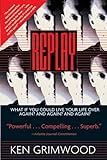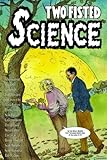1997: Search (Google search actually started in ~1996, but it wasn't until about 1997 that I discovered it.) Prior to Google, searching the Internet was done through Alta Vista which was crappy at finding what I wanted. I spent hours tweaking Boolean expressions, trying to get it to find the right thing. Google easily supplanted it.
2000: An important component in the cleanness and niceness of Google (Search) was the lack of annoying ads which threatened to overtake the rest of the Internet. Google's introduction of AdWords guaranteed a continued peaceful search experience while allowing Google to make money.
2001: Google saves the Usenet archives and makes them way more accessible as Google Groups (which name later came to mean primarily their mailing list/web forum offering, displacing Yahoo(!) Groups which is serviceable but a bit crappier and ad-ridden).
2002: Google News - A better interface for finding news articles (both recent and older stuff) without having to use some specific source or pay for the privilege.
2002: Froogle (now known by the less clever name "Google Shopping"). While never quite ideal, the interface made for a far more pleasant way of finding good prices for purchases on the Internet.
2003: Google acquires Blogger - the free, blogging service which brought you this post.
2004: Google Local is introduced and eventually surpasses other Yellow Pages services in usefulness and intuitiveness.
2004: Gmail revolutionizes web mail which had previously just been a crappy e-mail solution for people without access to *real* e-mail (back when men were men, women were women, and e-mail was text).
2004: Google Scholar: Google indexes academic articles, making them way easier to find. What was it like before Google Scholar? Hell.
2005: Google Maps revolutionizes online maps, providing mouse control over the map for zooming and shifting, bigger and better maps, satellite views, and increasing features and usability. Mapquest was previously my default source for online maps (though I would sometimes use MapBlast for its wonderfully sparse LineDrive driving directions).
2006: Google buys YouTube. At the time, I did not like this because YouTube's interface and video resolution were much worse than available on Google. But YouTube has gradually improved under Google.
2006: Google launches Google Docs & Spreadsheets. While I don't use these for my own purposes, people send me information formatted in such forms frequently enough that having Gmail automatically open them in a usable online viewer makes my life easier.
2007: Google Street View makes it possibly to become familiar with an area and find specific businesses and buildings without ever having to go there.
2007: GOOG-411 allows you to call up 800-GOOG-411 and get directory and business information by speaking location and desired business/location information. I like using it. It's good for when I am trying to accomplish something under a deadline (and don't have time to search from my phone by typing in search terms). [GOOG-411 is unfortunately being done away with in 2010. Microsoft bought TellMe and made BING-411, which is reputedly a good alternative.]
2009: Google Voice: Much of the credit is due to Grand Central, but under Google, this finally got text messaging capabilities and voice mail transcriptions and is just now way better. I don't know whether this will gain wide acceptance or use in the near term, but I believe that in ten years, the more sophisticated phone services which Google Voice allows (ringing many phones from one number, filtering incoming calls to specific phones or voice mail based on who is calling, etc.) will be standard telephone features.
2010: I expect that I will soon appreciate the power of the just released GoogleCL. It makes it possible to access a few Google services from the command line. Currently this is limited to Blogger, Calendar, Contacts, Docs, Picasa, and YouTube.
What this analysis confirms is that (with the exception of Google Voice) no single product that Google has released since 2005 has had the same value for me as Google Maps or Gmail. I'm not sure if this is because Google's new services have not been as vital or simply because I have been adopting fewer new services in the past few years.*
Google Print (started in 2003 and later becoming Google Books) and Google Reader (introduced in 2005) are two obvious contenders that I did not list above because I don't feel that I use them enough that they have impacted my life. Google Translate, I use frequently, but I never remember it surpassing Babelfish. It just became my default translation service somehow. Also Google Talk (2005), Google Calendar (2006), Android (2007), Chrome - Google's web browser (2008 - Mac version, 2010), and Google Wave (2009) have not found their way into my life yet. But even if they never do, the many little continuing improvements to Google Search and Gmail and other products, combined with Google still doing things the way that I would hope they would much of the time (such as offering command-line access to a user's Google data as mentioned above, as well as Google's new encrypted search engine: https://encrypted.google.com/) maintain Google's position in my esteem.
* A third possibility: There is a finite set of web sites that a typical user is going to use enough to be able to recall them and consider them useful. The longer I am on the Internet, the more of those slots are taken up by things that have been around for ~10 years. In the interest of shaking things up a little, let me recommend a new search engine I found when following up on Google's encrypted search:
The criticism of Google's encrypted search is that Google still retains the search records, so privacy is improved but could be better. An alternative is a new search engine called Duck Duck Go. It offers encrypted search AND complete privacy by not logging your IP address or browser information or retaining individual search histories of any type. It supports keyboard shortcuts, YubNub-like searching of other sites ([!g search terms] goes directly to the Google search results for those terms) and easily customizable results pages. It is worth checking out.(back to footnote marker)
UPDATE: 2012: Google announces the imminent demise of Froogle (currently operating under the name "Google Product Search") which will be replaced by "Google Shopping" which is described as "a purely commercial model built on Product Listing Ads." Up until now, the Google Product Search results were unbiased by which companies gave advertising money to Google. This new version will seemingly put the onus for providing product, pricing, and possibly availability information on the retailers, but it seems to also mean that retailers who do not bother to advertise with Google will not have their products appear under the new Google Shopping system. How this compares to the old system for the user will remain to be seen.
My usage of Google services has shifted somewhat since I first wrote this post. I still use Search, Gmail, Maps, StreetView, Google Scholar, YouTube (and Google Video search), and Voice. I find that I rarely use the Usenet search functionality of Google Groups, though I do use its mailing list functionality. Sadly, I have so far not found a use for GoogleCL. Google Translate is now definitely better than Babelfish was. I've started using Google Reader regularly. Despite the way its Google-Plus-associated makeover has made it less responsive and given it an uglier design that wastes screen space, it has the same convenience advantage that Gmail used to lure me away from e-mail clients that were not Web-based. While the interface for Google Books is still not great (giving very little vertical reading space), the fact that it is the only place on the Internet where certain books are available has made it highly useful at times. Google Docs & Google Spreadsheets are useful for real-time collaboration on projects. And after years of waiting for it, in 2011, Google finally improved on TinEye's reverse image search with their own reverse image search, allowing you to upload an image and then finding the same image and/or the most similar images on the Internet.
So despite my complaints about the elimination of services like GOOG-411 and Froogle, this overview has shown me that Google's various services are getting better and becoming more useful (from my perspective).



